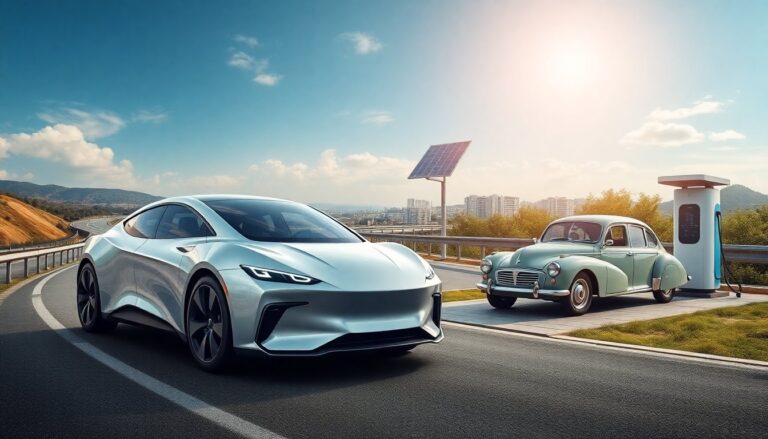Argomenti trattati
The automotive industry has experienced profound transformations over the years. From the advent of the first automobile to advancements in electric vehicles, technology has reshaped our understanding of transportation. These developments have enhanced vehicle efficiency and safety while significantly impacting our environment and society.
This article explores the pivotal phases of the automotive industry’s evolution, emphasizing technological advancements, the growth of electric vehicles, and the future of autonomous driving. Understanding these trends is essential for comprehending the current landscape and future trajectory of the industry.
The historical advancements in automotive technology
Initially, the automotive industry was defined by the introduction of the internal combustion engine in the late 19th century. This innovation heralded a new era in transportation, enabling faster and more efficient travel compared to horse-drawn carriages. The Ford Model T, produced in 1908, is frequently credited with revolutionizing the industry through assembly line production, thereby making cars more accessible to the general public.
Technological milestones
As automotive technology advanced, several milestones emerged that significantly transformed the industry. The introduction of electronic fuel injection in the 1960s enhanced fuel efficiency and reduced emissions. The 1980s marked the arrival of computerized engine management systems, which improved vehicle performance and diagnostics. More recently, advanced driver-assistance systems (ADAS) have enhanced safety, assisting drivers with features such as lane-keeping assistance and adaptive cruise control.
The rise of electric vehicles
In recent years, there has been a notable shift towards electric vehicles (EVs), spurred by concerns over climate change and the pursuit of sustainable transportation. Advances in battery technology, particularly lithium-ion batteries, have made electric vehicles increasingly practical for everyday use. Companies like Tesla have led this movement, illustrating that electric cars can rival traditional gasoline-powered vehicles in performance and range.
Environmental impact
The rise of EVs carries significant environmental implications. Unlike traditional vehicles that emit greenhouse gases, electric cars are generally viewed as more environmentally friendly, especially when charged with renewable energy sources. However, it is crucial to consider the entire lifecycle of the vehicle, including the manufacturing process and the sourcing of raw materials for batteries, to fully grasp their environmental impact.
The future of autonomous driving
Looking ahead, the automotive industry stands on the brink of another major transformation with the development of autonomous driving technology. Companies such as Waymo and Uber are investing significantly in research and development to create vehicles capable of operating without human intervention. This technology holds the promise of reducing traffic accidents caused by human error and enhancing mobility for individuals unable to drive.
However, the journey to fully autonomous vehicles is fraught with challenges, including regulatory hurdles, safety concerns, and ethical considerations. The technology must achieve a high level of reliability before widespread adoption can occur, and ongoing discussions regarding liability in the event of accidents will shape the future landscape of autonomous driving.
Challenges and opportunities
The transition to autonomous vehicles presents both challenges and opportunities for the automotive industry. While the potential for improved road safety and reduced congestion is substantial, the industry must also confront implications for employment, urban planning, and infrastructure. As the landscape evolves, traditional automakers must adapt to compete with tech companies entering the automotive arena.
The evolution of automotive technology reflects broader societal changes and challenges. From the historical advancements that shaped the industry to the contemporary shift towards electric and autonomous vehicles, technology continues to redefine our modes of transportation. Understanding these trends and their implications is crucial for anyone interested in the future of mobility.

